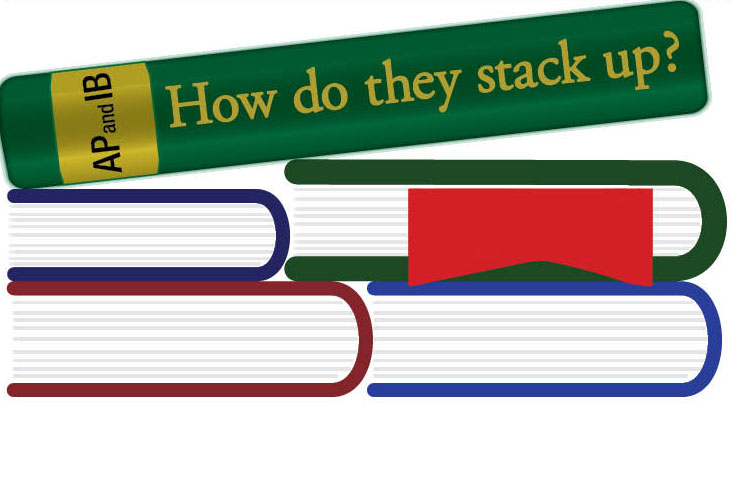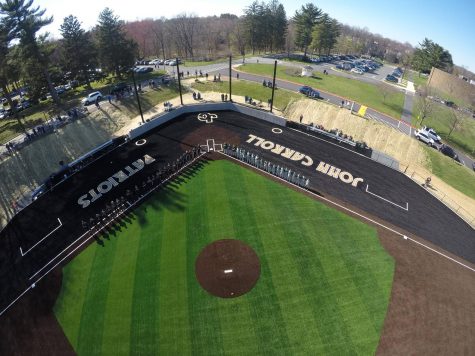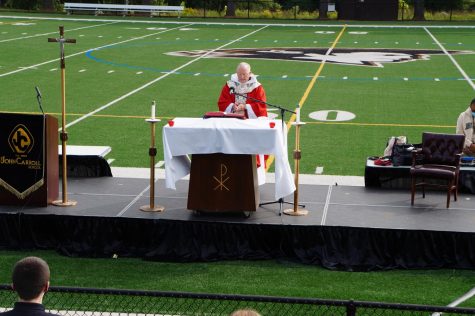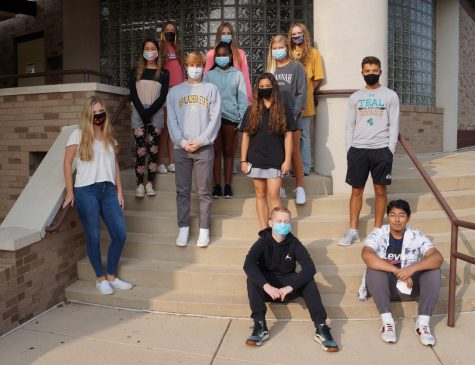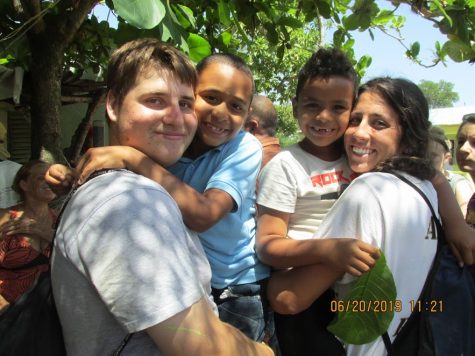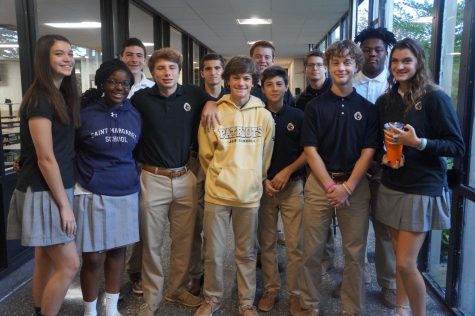AP and IB: How do they stack up?
With International Baccalaureate programs gaining prominence, how do they compare to the Advanced Placement program?
Junior Gabriella Cirincione blankly stares at her AP practice test. When the time is up and the teacher reads the answers, she is disappointed with her score. Cirincione knows that with this score, she will not receive college credit from any school. She wonders if she will do better on the exam in May and if there are any other options.
An alternative to the Advanced Placement (AP) program, International Baccalaureate (IB), has become prominent over the past few years. Between 2011 and 2017, the number of IB programs offered worldwide has increased by 46 percent, according to International Baccalaureate’s website.
The first IB school in the United States was established in 1977, and since then, 1,777 schools have developed at least one of the four IB programs offered.
The four IB programs are the Primary Years Program, the Middle Years Program, the Diploma Program (DP), and the Career-Related Program. However, only two of the four programs, the Diploma Program and the Career-related Program, are offered for high schoolers.
JC currently does not offer an IB program, however, according to Vice Principal of Academics Gary Scholl, adding an IB program was considered between five and 10 years ago when Paul Barker was principal.
“We looked at other schools and how an IB program would compete with our AP program here. We looked at all the requirements [and] costs, and during his tenure, it was decided that we would not move forward with an IB program and would continue to focus on an AP program,” Scholl said.
Cirincione finds the concept of an alternate program interesting. “I think it would be cool to find out more about IB and how it would work at JC,” she said.
While the AP program differs from IB programs, according to college counselor Carrie Siemsen, whether you take AP or IB courses does not affect college admissions. “If a school does not offer an IB program, then a college can’t hold it against them,” she said.
Senior Jordyn Carll, who participates in the IB program at Edgewood High School, believes the program has prepared her for college.
“I’m probably going to start in the fall of 2017 as a sophomore, completely skipping my first year. IB is awful in the moment, but gets you credit and just helps with college level learning in general,” she said.
We looked at the requirements and costs … and decided that we would not move forward with an IB program.
— Vice Principal of Academics Gary Scholl
Though Carll attributes an extreme loss of sleep due to IB schoolwork, sports, and work, she feels that IB has made her a better student.
“IB kids are super well-rounded. We are constantly busy and fill our schedules with sports, jobs, and clubs. We don’t sleep, but time management is definitely learned after two years,” Carll said.
Like IB programs, colleges offer credits for scores achieved on AP exams. The number of credits received for a score depends on the college.
There are 38 AP courses that can be offered at a high school, and JC offers 17. Unlike the AP program, the IB Diploma Program is structured differently and is broken into subject groups.
According to International Baccalaureate’s website, “The DP curriculum is made up of six subject groups and the DP core, comprising theory of knowledge (TOK), creativity, activity, service (CAS) and the extended essay. Through the DP core, students reflect on the nature of knowledge, complete independent research and undertake a project that often involves community service.”
Within the six subject groups, there are different courses that a student can take, and schools must be authorized and trained to teach each program.
The closest school to JC that is authorized to teach IB is Edgewood High School.
“IB is very different from AP because you do not take IB courses, you are in IB. You have to be in the IB program where all of your core classes are International Baccalaureate. Therefore, all the courses are very similar in structure and grading and all the topics are intertwined,” Carll said.
In order to implement an IB program, schools must meet certain requirements, be evaluated, and pay a fee. There are three stages when becoming an IB school: the application, the candidacy, and finally, the authorization.
Depending on what IB program a school decides to implement, it can take between two to three years to be authorized. The application fee for schools in the U.S. to become a candidate is $4,000.
Once schools become a candidate, the process of becoming an authorized IB school can take up to three additional years. There are two visits to the school by an IB official, and there is an annual candidate fee for each year the school is a candidate.
It costs the school $9,500 for each year they are a candidate, and the fee includes outside consultancy on meeting teacher requirements, two-day consultation visits and verification visits on the school’s campus, and access to the IB curriculum. Once a school is approved to be an IB school, they must pay an annual fee of $11,500.
Although an IB program will not be implemented, Scholl believes that “we have a pretty robust AP program that offers plenty of challenges for our students.”
He believes that although the IB Diploma Program holds value since it offers a distinct diploma, the AP program is competitive with the “rigorous course and very strict regimen of testing” that goes along with the IB Diploma Program.
Cirincione believes that implementing an IB program could improve JC and draw prospective students.
“Even though AP classes here are challenging, I think it would give students another option to challenge themselves and make JC stand out among other private schools,” she said.
Lauren Becker is a News Editor and Christiana Giovanazi is a Sports Editor for The Patriot and jcpatriot.com.



